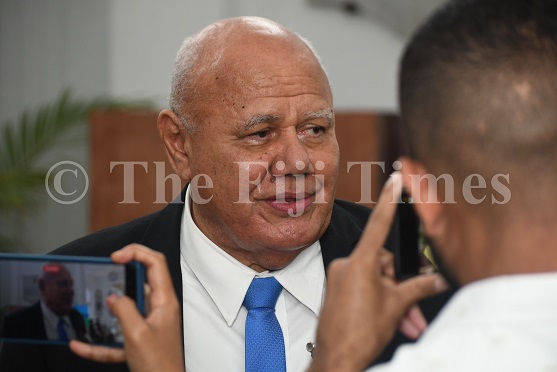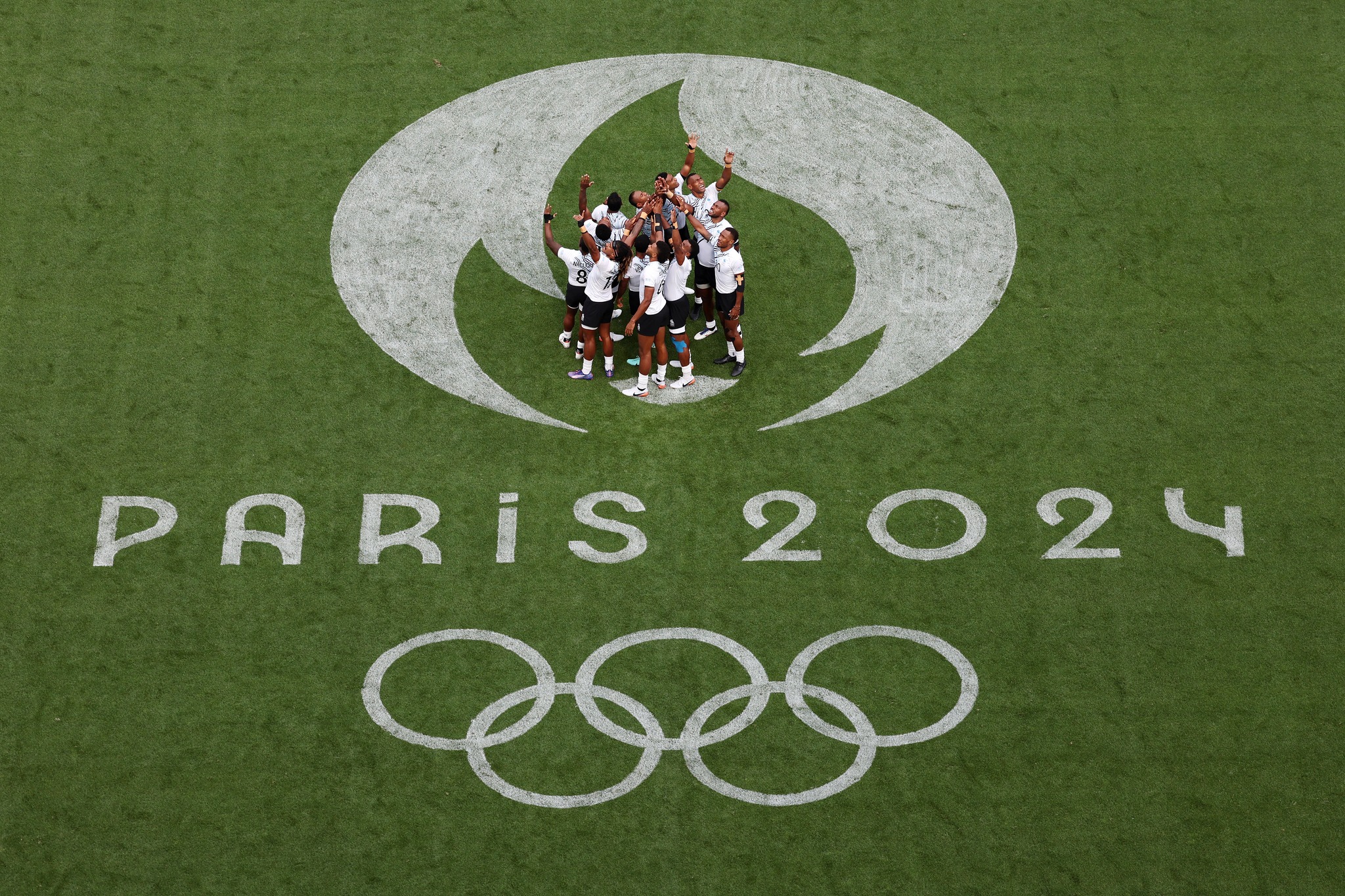Without flinching, the young man stepped off the lawn and onto the pit, coolly placing his bare feet onto large white hot stones.
There were collective gasps from visitors who lined the perimeter of the lawn to witness a spectacle that continues to captivate people the world over.
In the modern era, the idea of men walking over heated stones is something that fascinates simply because it appears to defy science and logic.
Yet for the people of Beqa Island, firewalking is something almost as natural as taking a stroll in the park.
Despite the advent of Christianity, many on this island off the southern coast of Viti Levu continue to believe in the power over fire which they maintain was bestowed to them by a supernatural entity eons ago.
The fact that they continue to firewalk and smile while doing it, continues to baffle conventional minded persons.
I visited Rukua Village in Beqa last week and was intrigued to note that this phenomenon was still well and truly alive.
Rukua is one of five different villages on Beqa Island which has a unique tradition that stands out in Fijian culture which is the “gift” of firewalking.
According to village historian Mika Tubanavau, 64, it is a legacy unparalleled in Fijian culture and one which they continue to be proud of.
It goes back to the story of a man by the name of Tuinaiviqalita, the chief fisherman of a group of people who were basically the ancestors of Sawau tribesmen.
Many may have read or heard of the story in which Tuinaiviqalita was so impressed by tales of storyteller named Dredre that he promised to give him an eel as a gift, which was quite a delicacy.
According to Mr Tubanavau, this was a time when his Sawau tribe ancestors lived at a settlement in the hills of Beqa known as Navakaisese.
“He put his hand in a hole in one of two streams that flowed through the mountains and pulled out a little spirit creature.”
According to legend, the diminutive spirit creature known in i-taukei as leka, (dwarf) then begged for his life promising to grant magic powers to Tuinaiviqalita in return.
“Back then in Beqa there were a lot of leka. They were short and naked and there were plenty of them around, ” Mr Tubanavou said.
The leka called Tuinamoliwai promised the young man many wives but this was rejected as Tuinaiviqalita already had sufficient partners and a promise of many great gifts was similarly turned back.
“The spirit also promised to make him a famous sailor but Tuinaiviqalita said that he already had this skill.
“Finally he said he could give him the power to walk over fire which he accepted.
“After walking around pit of heated stones a number of times, Tuinaiviqalita was then satisfied with his newfound power.
“The spirit asked that they both be buried in the pit for four days and four nights but Tuiqalita refused because he feared that someone might play a trick on him or actually try to kill him while he was beneath the earth,” the historian explained.
And this was where the legend ended.
According to Mr Tubanavau, there is no oral tradition on when and where Tuinaiviqalita carried out the first firewalking session and how.
It is unknown how long afterwards firewalking was practised by the people of Beqa, particularly the Sawau tribe, which went on to be split between two villages, Dakuibeqa and Rukua.
“After that the tribal warfare started again and this group had to move to the other side of the island,” Mr Tubanavau went on.
Consequently those from the villages of Naceva, Dakuna, Soliyaga on Beqa and even the neighbouring island of Yanuca also started firewalking.
Mr Tubanavou, who dedicated years to researching the origins of firewalking on Beqa, believes that it was practised well before the arrival of missionaries in Fiji.
An existing vucu or traditional i-Taukei chant on Beqa that has survived over generations tells of the gift bestowed to the descendants of the Sawau tribe.
Vei vu kece sara
Se nai tukuni makawa
Sa Takali malua yani
Ni tora mai na rarama
Ia ko yau
Au baci kaya tale
Ni na sega ni oti rawa
Vei ira na nomu kawa
It is still unclear when or who placed the strict requirements on firewalkers but Mr Tubanavau believes it may stretch directly back to that first meeting between Tuinaiviqalita and the spirit creature.
According to tradition, men from Beqa who were to practise firewalking were to remain celibate for four days prior to entering the heated pit or lovo.
They were also to refrain from eating coconuts or anything that was cooked in coconut milk and those whose wives were pregnant could not engage in firewalking.
It was said that failure to observe the tabu rendered the person liable to severe burns during the ceremony.
It is also widely believed that if there is any mention of — or somone jokes about firewalking — during the prepearation of food in earth oven during big functions, the food will not be fully cooked or droka.
These days the strict tabu have since been relaxed as men from the island try to make a living by carrying on an age old practice while still trying to live normal lives.
According Kelevi Biu, a retired firewalker from Rukua Village, many people on Beqa have changed their attitude to firewalking and regard it as demonic influence.
“The church has been linking firewalking to demonic power and because of this many have since decided not to engage in it,” Mr Biu said.
Mr Tubanavau said although Beqa islanders are Christians, the belief in their power to walk over fire is still very strong.
“We also look at it from a commercial perspective as it brings in much needed revenue,” he said.
In recent months Rukua and Dakuibeqa villagers have performed for tourists who visit the island on luxury cruise vessels.
Many tourists who watched the practice were doubtful and went out of their way to try and test the heat of the stones.
“During the day you can’t tell how hot the stones are but at night you can clearly see how they really are,” Mr Biu explained.
“I witnessed some tourists faint from watching us perform on the hot stones. It was just too much for them.
“Some of them try and test the heat of the stones by cracking eggs on them which cook in just a few seconds. Others throw their handkerchiefs into the pit which was quickly consumed by the heat.”
Up to this day young men of Beqa use their firewalking skills to wow visitors to their beautiful island and earn money in the process.
Mr Biu said while it was good to see young men from the island making use of their “gift” it was a far cry from the days in the 1970s which were considered the glory years of Fijian firewalking, when the then Fiji Visitors Bureau organised for large groups of men from the island to perform in countries as diverse as Canada, Hawaii Australia and New Zealand.
These days, on the island, firewalking is performed for small groups of visitors who reside on one of Beqa’s resorts.
I was privileged to witness a firewalking ceremony conducted by men from the village of Dakuibeqa at the Beqa Lagoon Resort.
I curiously watched as the youths heated large stones for hours using large pieces of wood collected from the nearby bush.
The heat from the fire was intense and I could not fathom how anyone in their right mind would dare to try walking on them.
At the designated time, visitors sat with baited breath as the young men of Dakuibeqa started clearing the pit of burning logs.
A lengthy tree-fern called waqabalabala which is said to contain the spirit god was then stretched across the lovo pit at the instructions of the bete (priest).
Following this a large vine was dragged across the stones levelling them and readying them for the firewalkers who suddenly emerged from the nearby bushes.
The bete then gave a shout which signaled the men to start walking single file over the white hot stones in the pit which was not a very large one at that.
Earlier firewalkers in Rukua and other villagers actually descended into a pit and could hardly be seen walking around the stones due to the depth of the lovo as opposed o the shallowness of the ones being used these days.
With piercing shrieks, they methodically placed the stones in order before each of them started walking around in the pit to the astonishment of those present.
There was actually fire burning in the centre of the pit, which made the scene all the more surreal.
Shouting bula greetings to the visitors who sat in awe, the men did not show any sign of pain and it was almost as if they were each taking a leisurely walk in their back yard.
“There has got to be a scientific explanation behind this,” offered Daniel Winitzky, one of a number of guests who watched the firewalking.
“I notice that they curl their toes up when they are walking around in the pit.”
Others were not so sceptical with one elderly guest from New Zealand offering “that there are some things on Earth that science cannot explain.”
Mr Tubanavau said in the old days, the priest or bete would summon the chosen firewalkers into a valevakaviti and spoke to them in a way so as they would gather courage to perform the fete.
“Basically you have to have the guts to do it. If you don’t have the guts you shouldn’t even try it,” he explained as we sat with other Rukua men in the dimly lit village hall drinking kava.
“These days it’s all different. They just say a short prayer before they go firewalking and another one afterward. It’s as simple as that. There are also no more tabu like before. It’s all changed now. Most of the older men who used to do firewalking are now retired and today it’s only practised by younger men from the villages.”
I asked one of the young firewalkers by the name of Simione Meteka on whether he felt any pain and he said it was just like taking a walk on the grass.
“I don’t feel anything at all, no pain.
“It’s like I’m just walking around outside,” said Meteka, who interestingly is from Tokatoka, Draubata in Tailevu but who, through marital ties, was allowed to participate in the ceremony.
In fact firewalking is said to have spread to other parts of Beqa and nearby Yanuca Island through marital ties.
Interestingly people of Beqa are believed to possess powers to heal burns or in the i-Taukei, the ability to tara kama although there are others who remain sceptical about these claims.
Ultimately though, it is their firewalking abilities that have and continue to amaze and perplex.
Whether or not there is some supernatural power that allows them to perform the fete or it is simply mind over matter is anyone’s guess.
Firewalking is a unique legacy that the people of Beqa consider part of their DNA which retain its element of mystery for some time yet.






